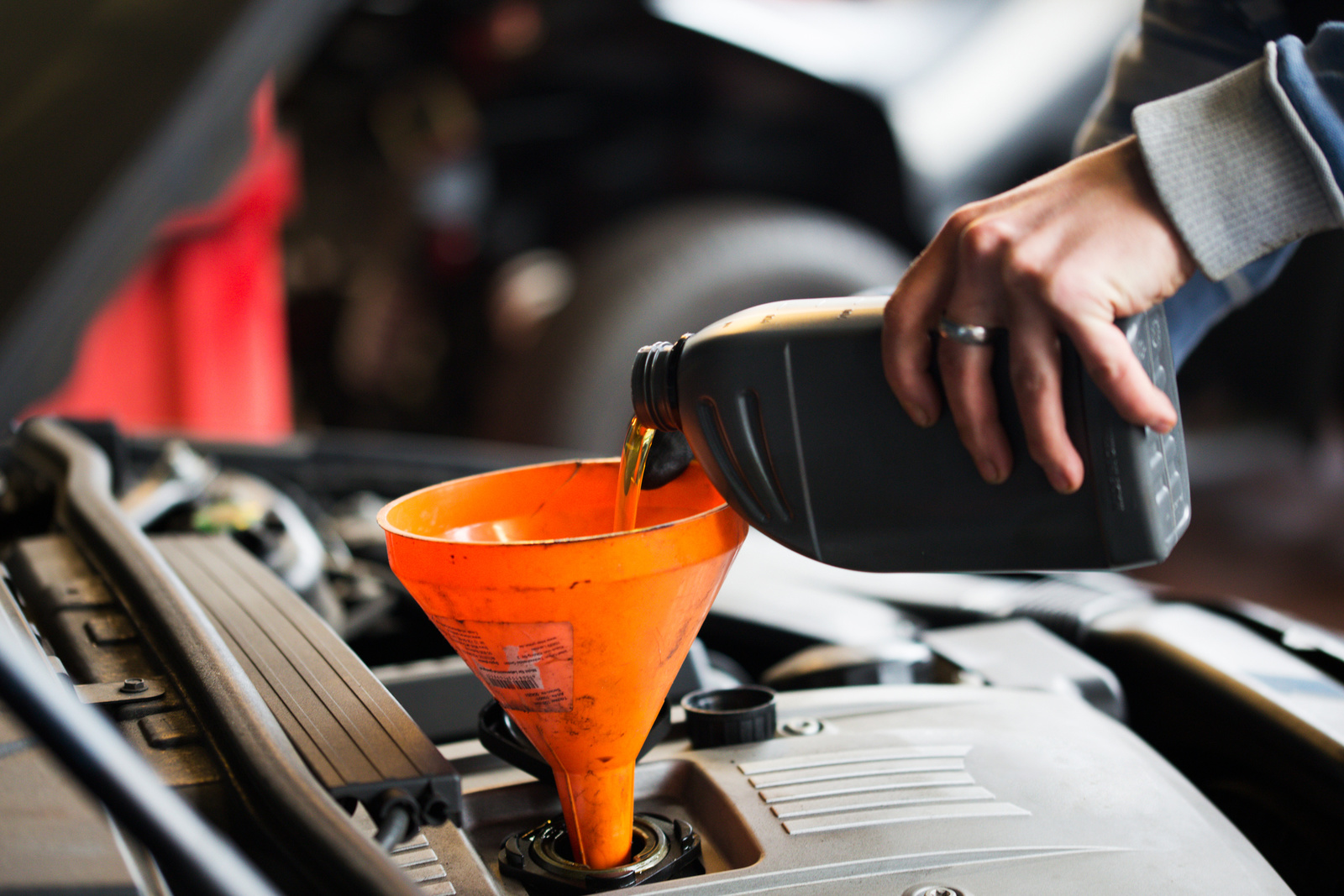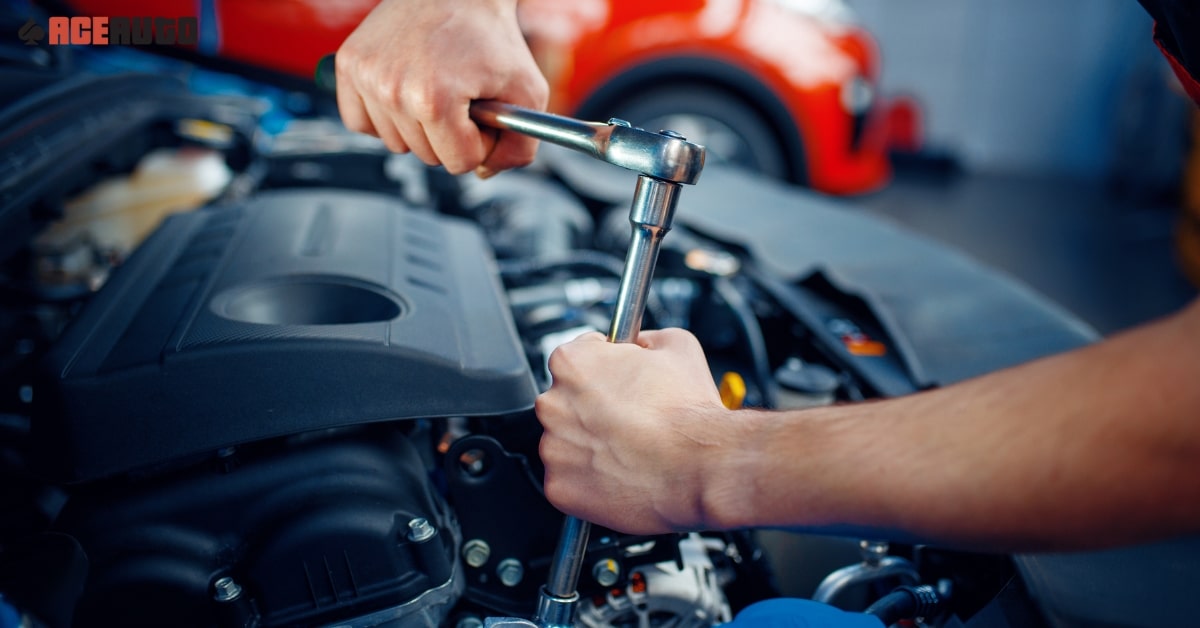All Categories
Featured
Liable for integrating the rotation of the crankshaft and camshaft, the timing belt makes certain the engine's valves open and close at the right times during the burning procedure. If the timing belt stops working, it can result in serious engine damage.
What Is a Timing Belt? The timing belt is a long, toothed rubber or composite belt that attaches the crankshaft to the camshaft(s) in an inner burning engine. Its task is to keep the engine's shutoffs and pistons in sync, ensuring the engine runs successfully. The timing belt additionally controls other crucial engine functions like the water pump and the power steering pump, relying on the car.
![]()
Without the correct timing, the engine's pistons and valves can clash, leading to considerable and costly damage. Changing the timing belt on timetable is one of the ideal methods to guarantee your engine runs at its finest and avoid expensive repair services.
Why Timing Belt Replacement Matters. Stopping Catastrophic Engine Damage: The most substantial threat of not changing a worn timing belt is engine failing. Replacing the timing belt at the advised intervals is the finest method to avoid such tragic damage, saving you from the stress and high price of engine repair work or replacement.
![]()
Maintaining Engine Efficiency: A timing belt that remains in excellent condition makes certain that all engine components operate in excellent harmony. If the timing belt is used or extended, it can create the engine to lose power, experience harsh idling, or struggle to begin. By changing the timing belt routinely, you can keep your engine performing at peak effectiveness, which aids preserve optimal fuel economic situation and performance.
Avoiding Unexpected Breakdowns: A damaged timing belt can cause your engine to stop abruptly, potentially leaving you stranded in the middle of a journey. By changing your timing belt on schedule, you decrease the risk of sudden failures that can leave you in a troublesome or unsafe scenario. Normal upkeep reduces the possibilities of experiencing these sort of disturbances, helping you remain on the roadway longer without fretting about your engine falling short.
Cost-Effective Maintenance: Timing belt substitute is a lot less costly than fixing or changing an engine that's been harmed due to a timing belt failure. While the cost of replacing the timing belt may vary depending upon your vehicle and its place, it is much extra budget friendly than the expenses connected with significant engine repair work or replacements. Changing your timing belt at the advised periods can conserve you a substantial amount of money over the future by preventing damages to your engine.
When Should You Change Your Timing Belt? The timing belt does not last for life, and most manufacturers recommend changing it between 60,000 and 100,000 miles. Nevertheless, the precise timing relies on your lorry's make, model, and driving problems, so it's important to inspect your proprietor's manual for certain advice.
Indicators that your timing belt may need interest include uncommon engine sounds (such as a shrill whining or ticking sound), difficulty beginning the engine, or a reduction in engine efficiency. If you discover any one of these indicators, it's important to have the timing belt inspected by an expert auto mechanic.
![]()
Conclusion. The timing belt is a tiny yet vital component of your engine, and normal substitute is vital to keeping your automobile's performance and stopping expensive damages. By staying on top of timing belt maintenance, you'll guarantee your engine operates efficiently, prevent unforeseen breakdowns, and shield your cars and truck from major repair work. Watch on your lorry's suggested timing belt substitute timetable, and always seek advice from a relied on mechanic to keep your engine running efficiently for many years ahead.
What Is a Timing Belt? The timing belt is a long, toothed rubber or composite belt that attaches the crankshaft to the camshaft(s) in an inner burning engine. Its task is to keep the engine's shutoffs and pistons in sync, ensuring the engine runs successfully. The timing belt additionally controls other crucial engine functions like the water pump and the power steering pump, relying on the car.

Without the correct timing, the engine's pistons and valves can clash, leading to considerable and costly damage. Changing the timing belt on timetable is one of the ideal methods to guarantee your engine runs at its finest and avoid expensive repair services.
Why Timing Belt Replacement Matters. Stopping Catastrophic Engine Damage: The most substantial threat of not changing a worn timing belt is engine failing. Replacing the timing belt at the advised intervals is the finest method to avoid such tragic damage, saving you from the stress and high price of engine repair work or replacement.

Maintaining Engine Efficiency: A timing belt that remains in excellent condition makes certain that all engine components operate in excellent harmony. If the timing belt is used or extended, it can create the engine to lose power, experience harsh idling, or struggle to begin. By changing the timing belt routinely, you can keep your engine performing at peak effectiveness, which aids preserve optimal fuel economic situation and performance.
Avoiding Unexpected Breakdowns: A damaged timing belt can cause your engine to stop abruptly, potentially leaving you stranded in the middle of a journey. By changing your timing belt on schedule, you decrease the risk of sudden failures that can leave you in a troublesome or unsafe scenario. Normal upkeep reduces the possibilities of experiencing these sort of disturbances, helping you remain on the roadway longer without fretting about your engine falling short.
Cost-Effective Maintenance: Timing belt substitute is a lot less costly than fixing or changing an engine that's been harmed due to a timing belt failure. While the cost of replacing the timing belt may vary depending upon your vehicle and its place, it is much extra budget friendly than the expenses connected with significant engine repair work or replacements. Changing your timing belt at the advised periods can conserve you a substantial amount of money over the future by preventing damages to your engine.
When Should You Change Your Timing Belt? The timing belt does not last for life, and most manufacturers recommend changing it between 60,000 and 100,000 miles. Nevertheless, the precise timing relies on your lorry's make, model, and driving problems, so it's important to inspect your proprietor's manual for certain advice.
Indicators that your timing belt may need interest include uncommon engine sounds (such as a shrill whining or ticking sound), difficulty beginning the engine, or a reduction in engine efficiency. If you discover any one of these indicators, it's important to have the timing belt inspected by an expert auto mechanic.

Conclusion. The timing belt is a tiny yet vital component of your engine, and normal substitute is vital to keeping your automobile's performance and stopping expensive damages. By staying on top of timing belt maintenance, you'll guarantee your engine operates efficiently, prevent unforeseen breakdowns, and shield your cars and truck from major repair work. Watch on your lorry's suggested timing belt substitute timetable, and always seek advice from a relied on mechanic to keep your engine running efficiently for many years ahead.
Latest Posts
Explore Auto Services & More: Comprehensive Repair Options from Montclare Auto Repair
Published en
1 min read
Learn About Oil Changes & More: Comprehensive Repair Options from Montclare Auto Repair
Published en
1 min read
Reliable Industrial Roof Providers by Weathercraft
Published en
1 min read
More
Latest Posts
Explore Auto Services & More: Comprehensive Repair Options from Montclare Auto Repair
Published May 26, 25
1 min read
Learn About Oil Changes & More: Comprehensive Repair Options from Montclare Auto Repair
Published May 25, 25
1 min read
Reliable Industrial Roof Providers by Weathercraft
Published May 24, 25
1 min read